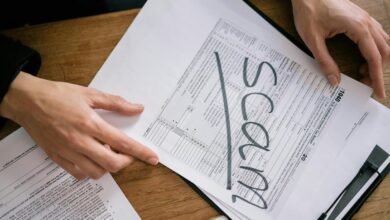Hotline Caller Fraud Risk Monitoring Bureau 3510181314 3770229558 3889396900 3491377702 3881197221 3293148809

The Hotline Caller Fraud Risk Monitoring Bureau operates through specific contact numbers, including 3510181314 and 3770229558. Its primary purpose is to combat hotline caller fraud by implementing unique identifiers for better verification. This approach addresses the vulnerabilities associated with fraudulent reporting systems. However, the ongoing evolution of scams necessitates a deeper examination of the protective measures in place. What strategies are most effective in safeguarding individuals against these increasingly sophisticated threats?
Understanding Hotline Caller Fraud
While many organizations rely on hotlines as a vital tool for reporting misconduct, the risk of hotline caller fraud poses significant challenges to their effectiveness.
Effective fraud detection mechanisms and robust caller authentication processes are essential to mitigate this risk.
Failure to implement these safeguards can lead to false reports, undermining trust and compromising the integrity of the reporting system.
The Role of Unique Identifiers in Monitoring
Unique identifiers serve as a critical component in the monitoring of hotline caller fraud, enhancing the reliability of the reporting process. They facilitate unique tracking of each interaction, ensuring accurate data collection.
Furthermore, these identifiers bolster caller authentication, enabling organizations to verify identities and assess the legitimacy of claims. This systematic approach ultimately promotes transparency and accountability within the fraud monitoring framework.
Identifying the Risks Associated With Hotline Fraud
As organizations increasingly rely on hotline systems for reporting fraud, the risks associated with hotline fraud have become more pronounced.
Effective risk assessment is essential for identifying vulnerabilities within these systems. Fraud detection mechanisms must evolve to address potential exploitation by malicious actors.
Understanding these risks is crucial for organizations striving to maintain integrity and trust in their reporting channels, safeguarding against misuse.
Protecting Yourself From Scammers
How can individuals effectively shield themselves from the myriad of scams that proliferate in today’s society?
Emphasizing scam awareness is crucial for personal security. Individuals should educate themselves about common tactics used by scammers, verify the legitimacy of unsolicited communications, and utilize technology such as call-blocking apps.
Additionally, sharing knowledge within communities fosters a collective defense against fraudulent schemes.
Conclusion
In a world where scammers are as prevalent as unsolicited emails promising vast fortunes, the Hotline Caller Fraud Risk Monitoring Bureau stands as a beacon of hope—or perhaps a very elaborate joke. With its unique identifiers and stringent authentication processes, it humorously suggests that trust can flourish amidst deceit. As individuals navigate this treacherous landscape, one can’t help but wonder if the real fraud is our belief that a hotline can ever fully outsmart the ever-evolving creativity of con artists.



